Desk & Table Clocks
One easy way to add some personality and style to a space is by incorporating desk and table clocks.
REFINE RESULTS
- Page 1 of 1
- 1
- Mint Homeware Table ClockOUT OF STOCK
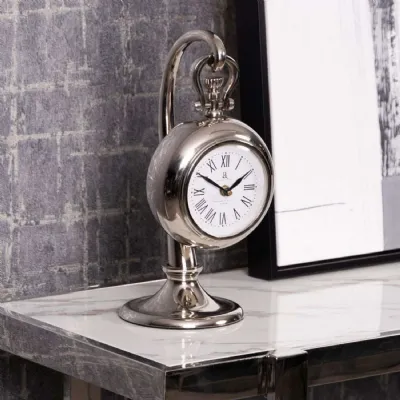
- Mid Century Aluminium Table Clock Large 28cmIN STOCK
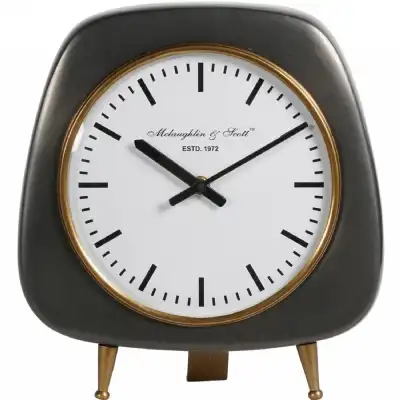
- Mid Century Retro Style Small 20cm Nickel Table ClockIN STOCK
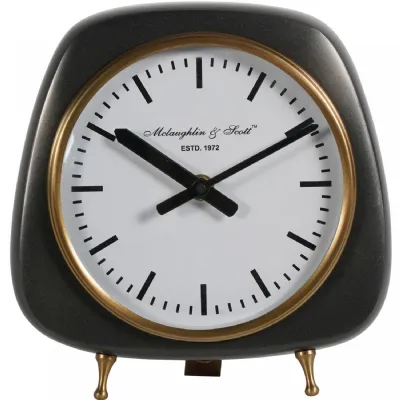
- Silver Metal Glass Floating Clock Face Square Table ClockIN STOCK
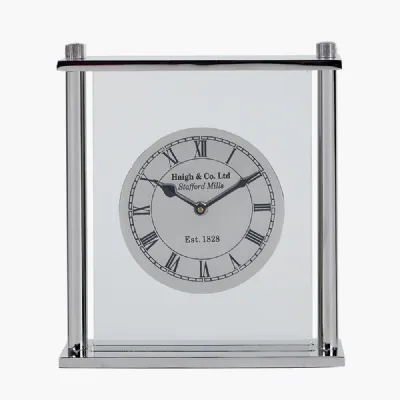
- Gold Metal and Glass Floating Clock Face Square Table ClockIN STOCK
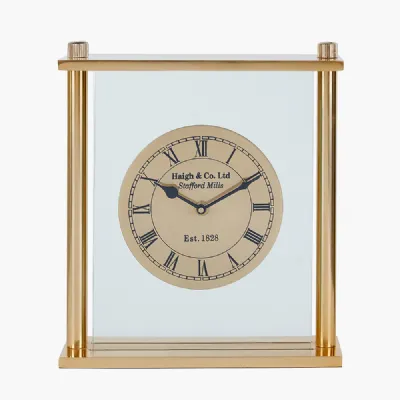
- Tan Leather and Antique Brass Table Desk ClockIN STOCK
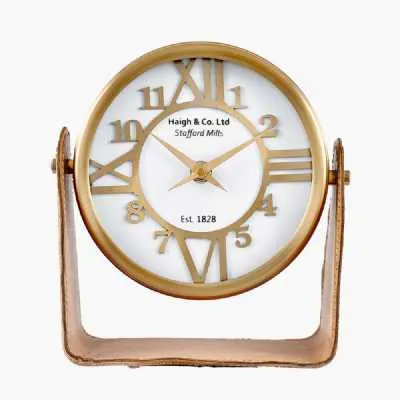
- Black Leather and Nickel Table ClockIN STOCK
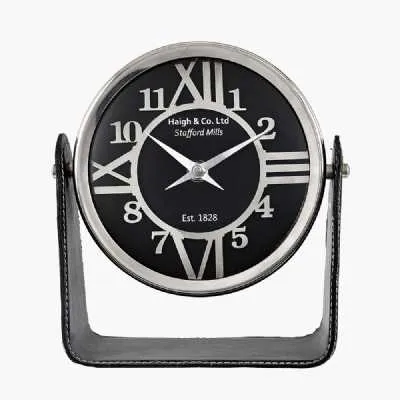
- Nebolo Nickel Rectangular Table ClockSTOCK DUE: 09/09/2024
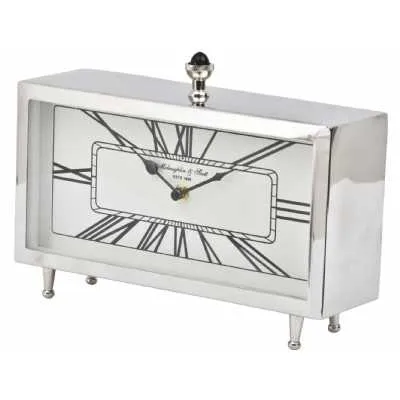
- Large Nickel Round Desk Paperweight See Through ClockSTOCK DUE: 09/09/2024
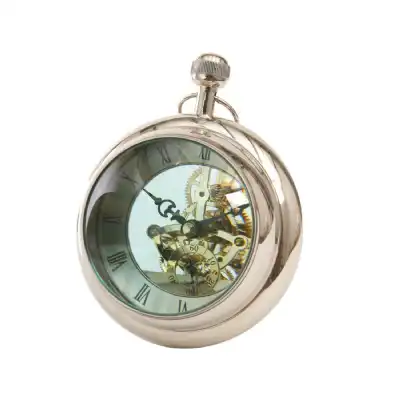
- Page 1 of 1
- 1
Often referred to as table clocks or tabletop clocks, desk clocks are compact timepieces made especially to be used on desks, tables, or other flat surfaces. Its primary purpose is to indicate the time, but it also gives a workstation or living room an appealing touch. Desk and table clocks are meant to remain permanent and enhance the aesthetics of a certain area, in contrast to bigger wall clocks or portable timekeeping gadgets like wristwatches.
Key Features Commonly Found in Desk or Table Clocks
- Analogue or Digital Display: Digital clocks provide a numerical display of time, usually through the use of LED or LCD technology, whereas analog clocks have traditional clock hands and faces with numbers.
- Materials: Wood, metal, plastic, glass, or any combination of these materials can be used to create desk clocks. A material's selection often impacts the overall look.
- Size: There are a variety of sizes available for desk and table clocks, ranging from smaller designs ideal for compact desks to bigger, more prominent styles.
- Extra Characteristics:
Alarms- Several desk and table clocks come with alarm features to assist you in keeping track of your time.
Temperature Display- The present temperature can be displayed on certain models, offering helpful information.
Calendar Function: An integrated calendar display for more convenience. - Style and Design: There are many different finishes and types of desk and table clocks, including traditional, retro, contemporary, and minimalist designs. Users can match the style of the clock according to their tastes and the room's general decor due to the variety of styles available.
- Power Source: Clocks for desks and tables can be electric, battery-operated, or include both. Some could also feature a backup power supply in case there are power interruptions so they can keep precise time.
- Movement Type:
Quartz- For exact time management, the majority of desk and table clocks use quartz movements.
Mechanical- Some desk and table clocks that are expensive or antique would include mechanical movements. - Adjustability: Customization based on personal tastes is made possible with adjustable settings for the clock, alarm, and other functions.
- Maintenance and Durability: Easy maintenance, which includes characteristics like easily accessible batteries or parts and robust design to guarantee the desk clock's lifespan.
Types of Desk and Table Clocks
Traditional Table Clocks
If you have a classic or traditional design aesthetic, a traditional table clock may be the perfect choice for you. These clocks often feature elegant designs, such as ornate metal or wood construction, and Roman numeral dials.
Modern Table Clocks
For those with a more contemporary taste, modern table clocks are a great option. These clocks often have sleek and minimalist designs, with clean lines and simple details. Some may even have digital displays for a more high-tech look.
Antique Table Clocks
If you love vintage or antique décor, an antique table clock can add a touch of old-world charm to your space. These clocks often feature intricate designs, such as filigree metalwork or hand-painted details, and may be made from materials like brass or porcelain.
FAQs
Q: What is the difference between a desk clock and a table clock?
A: Desk clocks are typically smaller in size and are designed to sit on a desk or workspace, while table clocks are larger and are meant to be displayed on a table or mantelpiece.
Q: Can desk and table clocks be used as decorative pieces?
A: Absolutely! Desk and table clocks come in a variety of styles and designs, from sleek and modern to traditional and ornate, making them perfect for adding a decorative touch to any room.

 SEARCH
SEARCH
 sales@
sales@